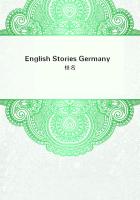He had no aspirations after the crown of martyrdom. He confessed himself, therefore, with great decorum, heard mass in Wimbledon Church at Easter, and, for the better ordering of his spiritual concerns, took a priest into his house. Dr. Nares, whose simplicity passes that of any casuist with whom we are acquainted, vindicates his hero by assuring us that this was not superstition, but pure unmixed hypocrisy. "That he did in some manner conform, we shall not be able, in the face of existing documents, to deny; while we feel in our own minds abundantly satisfied, that, during this very trying reign, he never abandoned the prospect of another revolution in favour of Protestantism." In another place, the Doctor tells us, that Cecil went to mass "with no idolatrous intention." Nobody, we believe, ever accused him of idolatrous intentions. The very ground of the charge against him is that he had no idolatrous intentions. We never should have blamed him if he had really gone to Wimbledon Church, with the feelings of a good Catholic, to worship the host. Dr. Nares speaks in several places with just severity of the sophistry of the Jesuits, and with just admiration of the incomparable letters of Pascal. It is somewhat strange, therefore, that he should adopt, to the full extent, the jesuitical doctrine of the direction of intentions.
We do not blame Cecil for not choosing to be burned. The deep stain upon his memory is that, for differences of opinion for which he would risk nothing himself, he, in the day of his power, took away without scruple the lives of others. One of the excuses suggested in these Memoirs for his conforming, during the reign of Mary to the Church of Rome, is that he may have been of the same mind with those German Protestants who were called Adiaphorists, and who considered the popish rites as matters indifferent. Melanchthon was one of these moderate persons, and "appears," says Dr. Nares, "to have gone greater lengths than any imputed to Lord Burleigh." We should have thought this not only an excuse, but a complete vindication, if Cecil had been an Adiaphorist for the benefit of others as well as for his own. If the popish rites were matters of so little moment that a good Protestant might lawfully practise them for his safety, how could it be just or humane that a Papist should be hanged, drawn, and quartered, for practising them from a sense of duty? Unhappily these non-essentials soon became matters of life and death just at the very time at which Cecil attained the highest point of power and favour, an Act of Parliament was passed by which the penalties of high treason were denounced against persons who should do in sincerity what he had done from cowardice.
Early in the reign of Mary, Cecil was employed in a mission scarcely consistent with the character of a zealous Protestant.
He was sent to escort the Papal Legate, Cardinal Pole, from Brussels to London. That great body of moderate persons who cared more for the quiet of the realm than for the controverted points which were in issue between the Churches seem to have placed their chief hope in the wisdom and humanity of the gentle Cardinal. Cecil, it is clear, cultivated the friendship of Pole with great assiduity, and received great advantage from the Legate's protection.
But the best protection of Cecil, during the gloomy and disastrous reign of Mary, was that which he derived from his own prudence and from his own temper, a prudence which could never be lulled into carelessness, a temper which could never be irritated into rashness. The Papists could find no occasion against him.
Yet he did not lose the esteem even of those sterner Protestants who had preferred exile to recantation. He attached himself to the persecuted heiress of the throne, and entitled himself to her gratitude and confidence. Yet he continued to receive marks of favour from the Queen. In the House of Commons, he put himself at the head of the party opposed to the Court. Yet, so guarded was his language that, even when some of those who acted with him were imprisoned by the Privy Council, he escaped with impunity.















